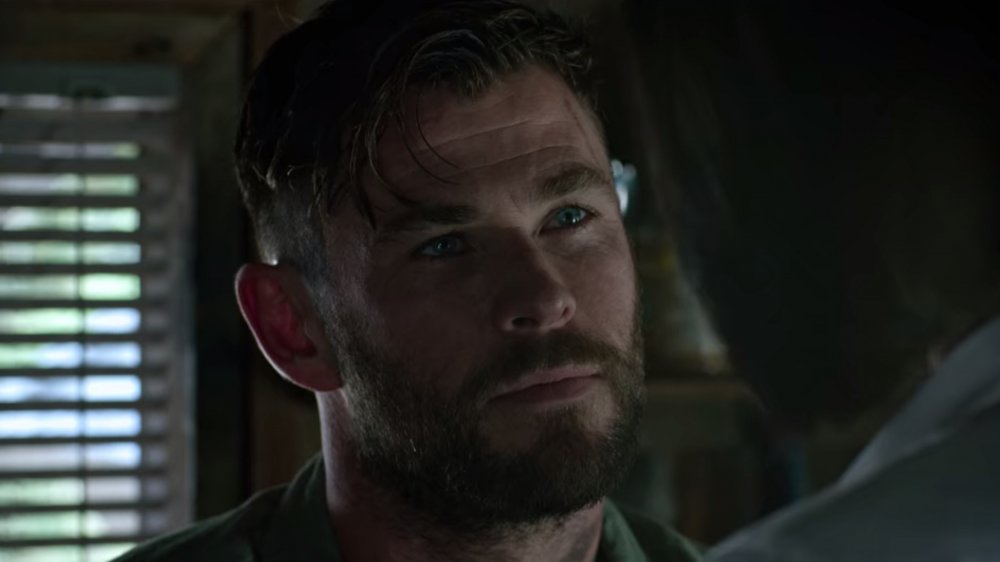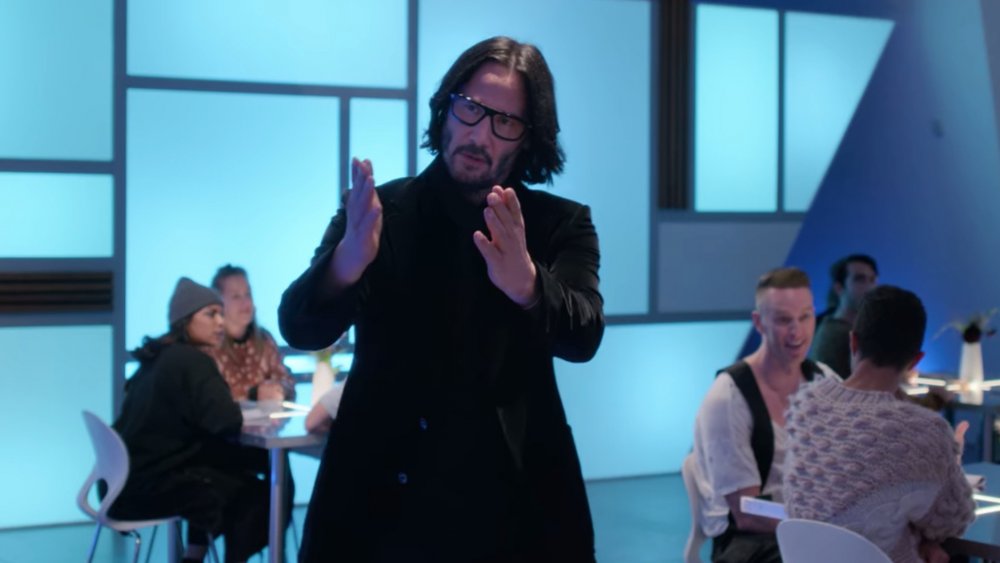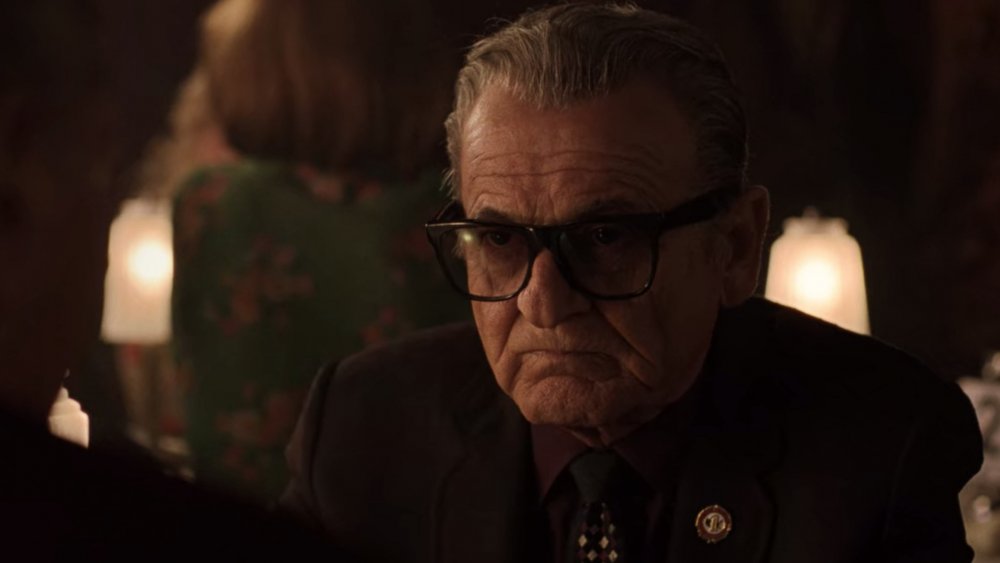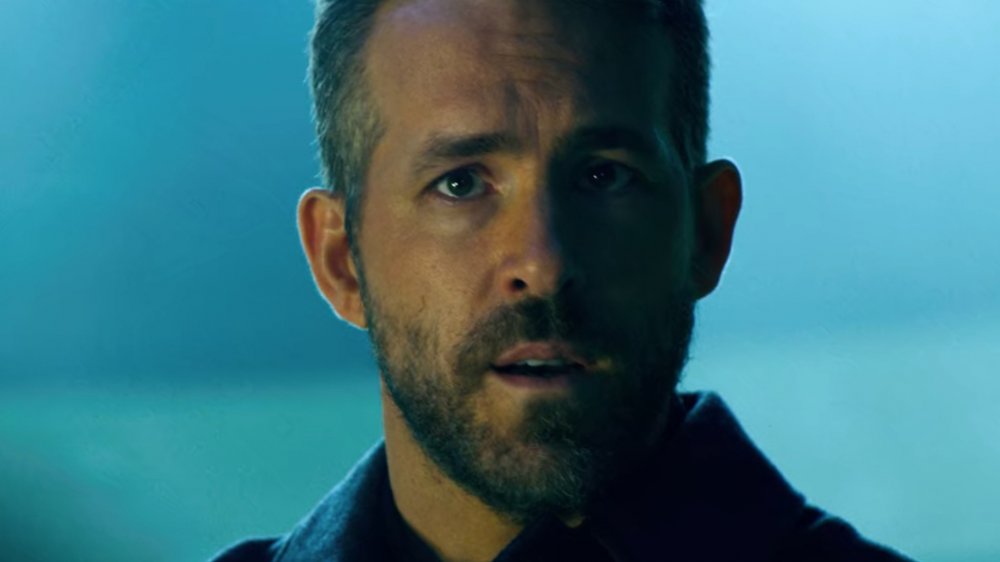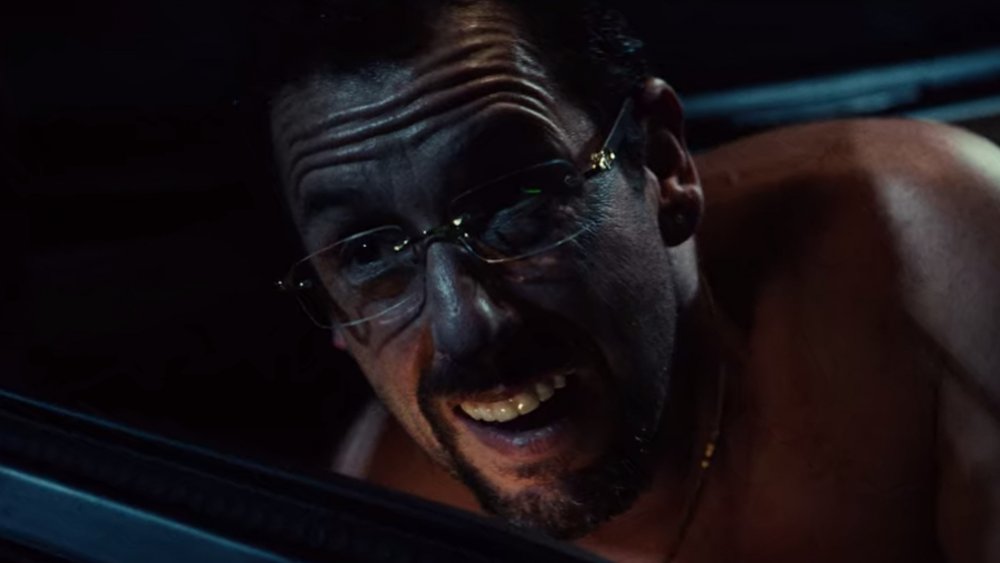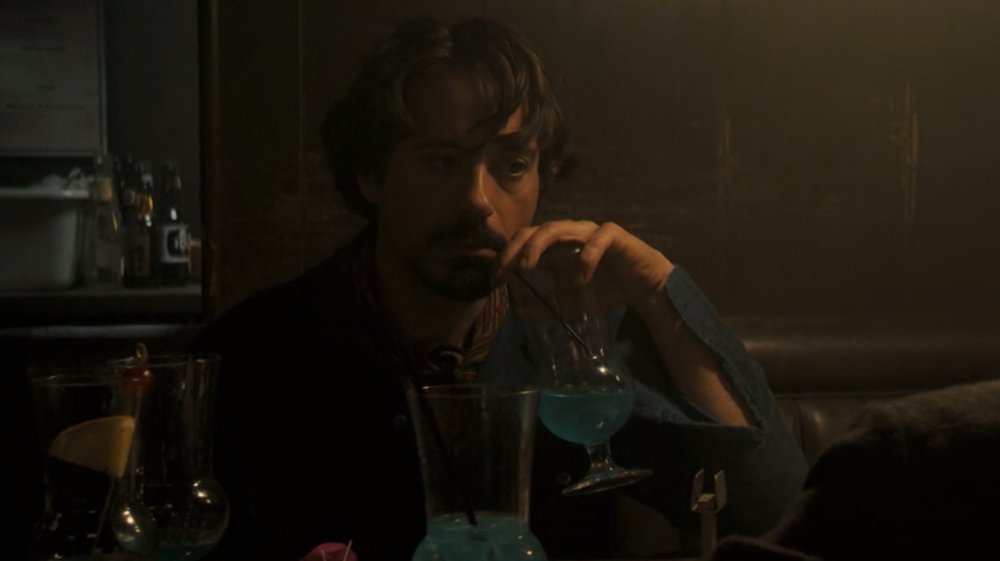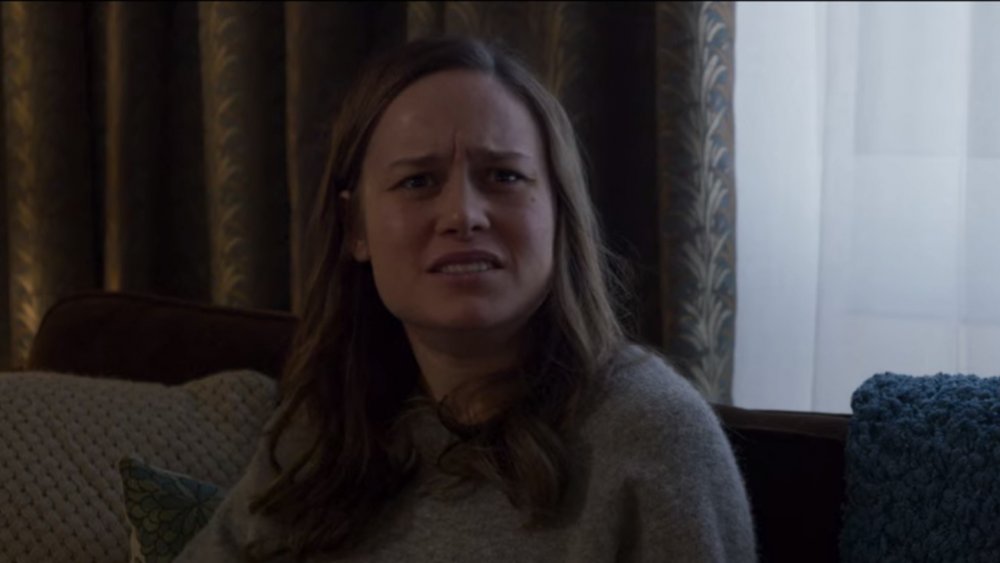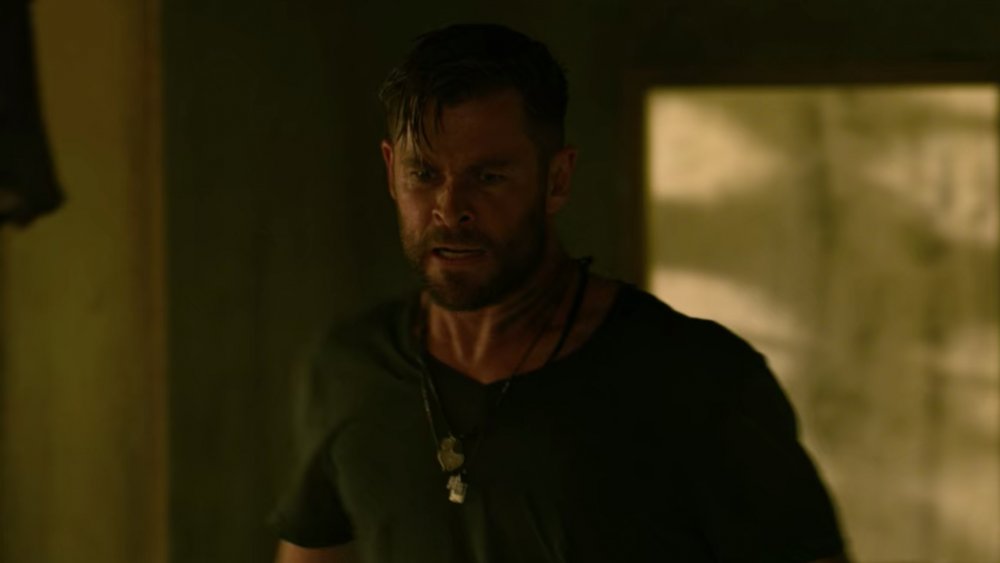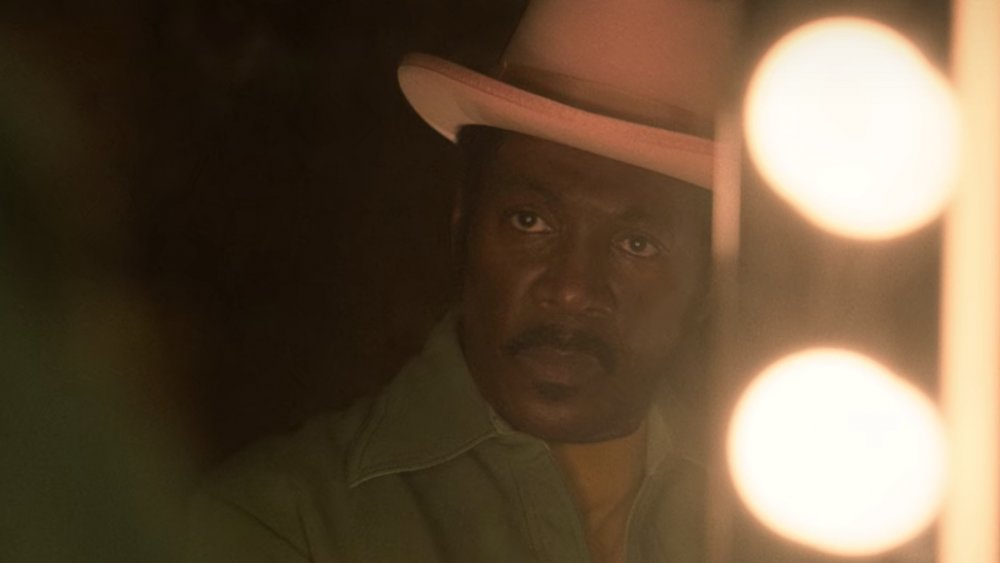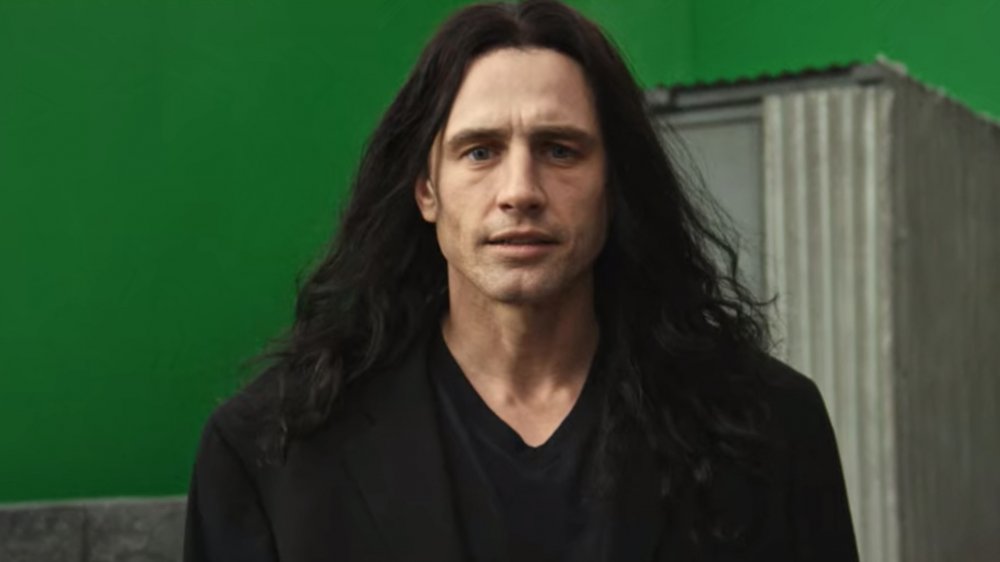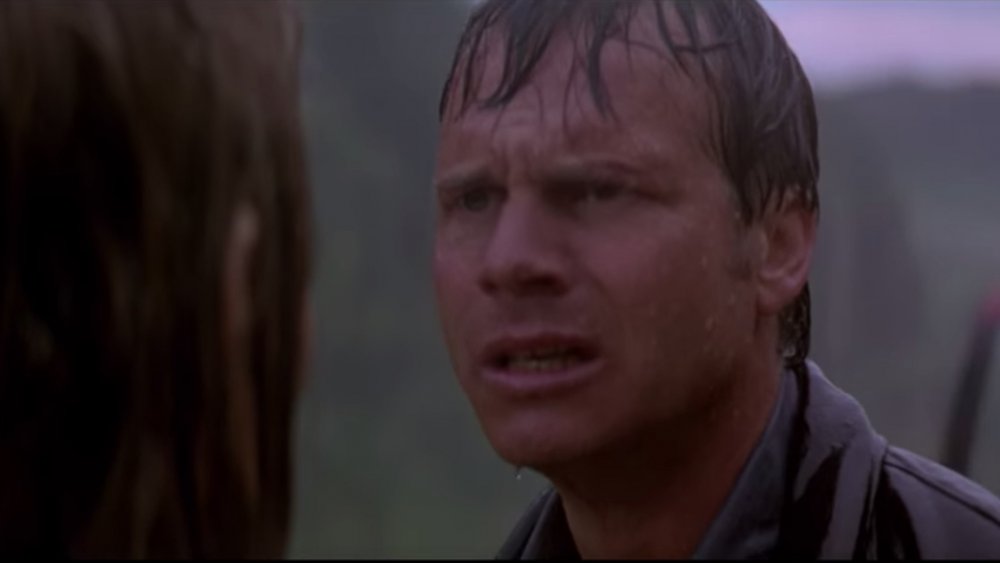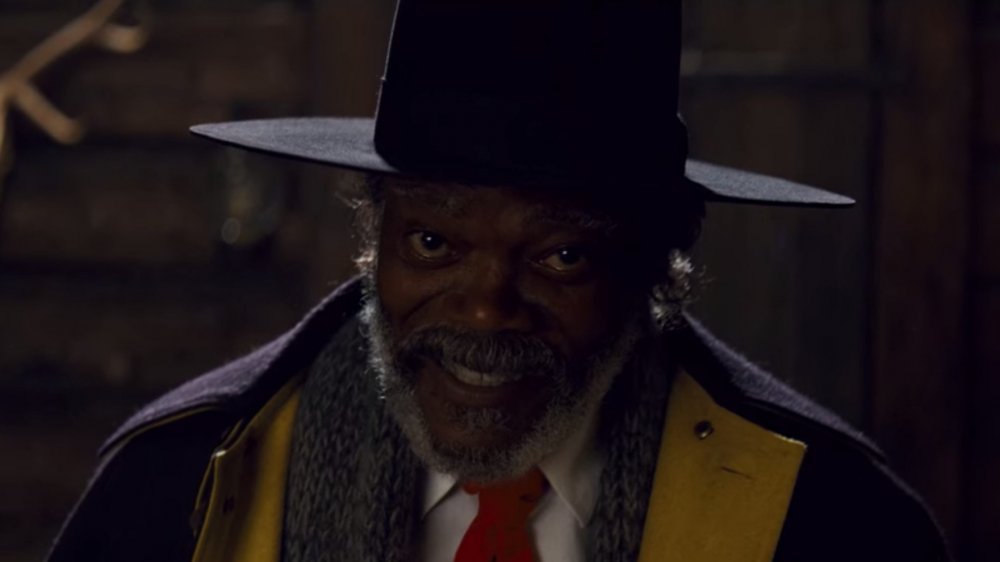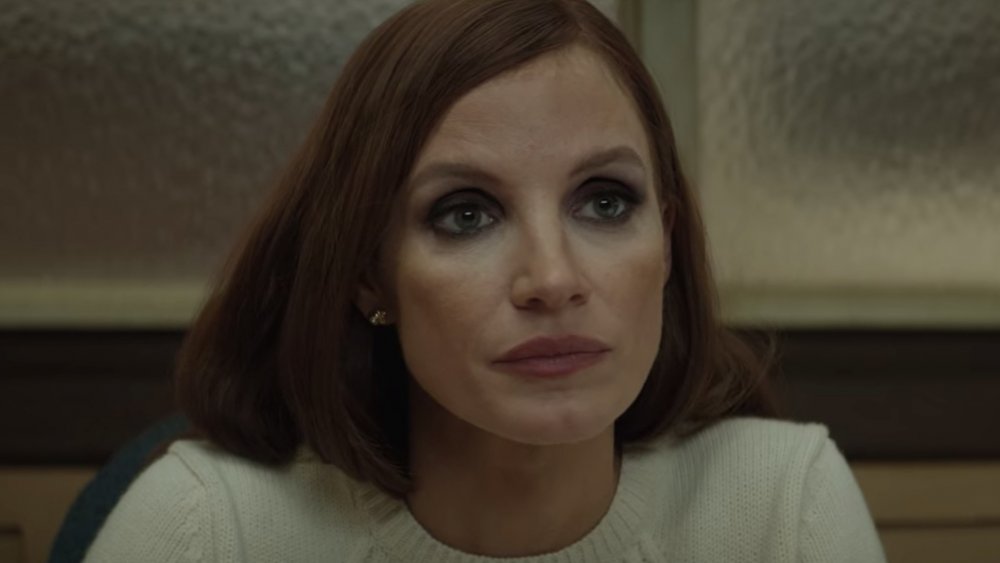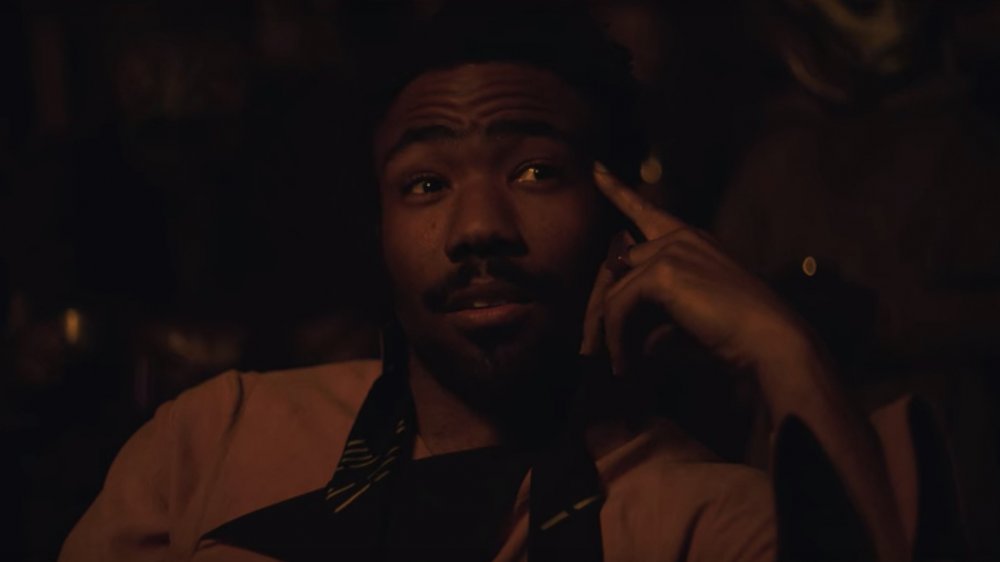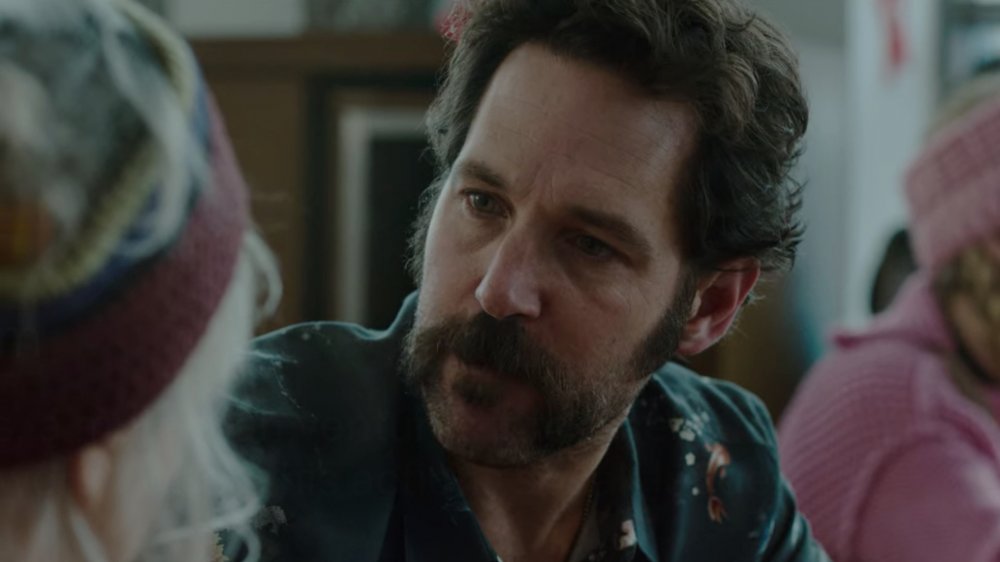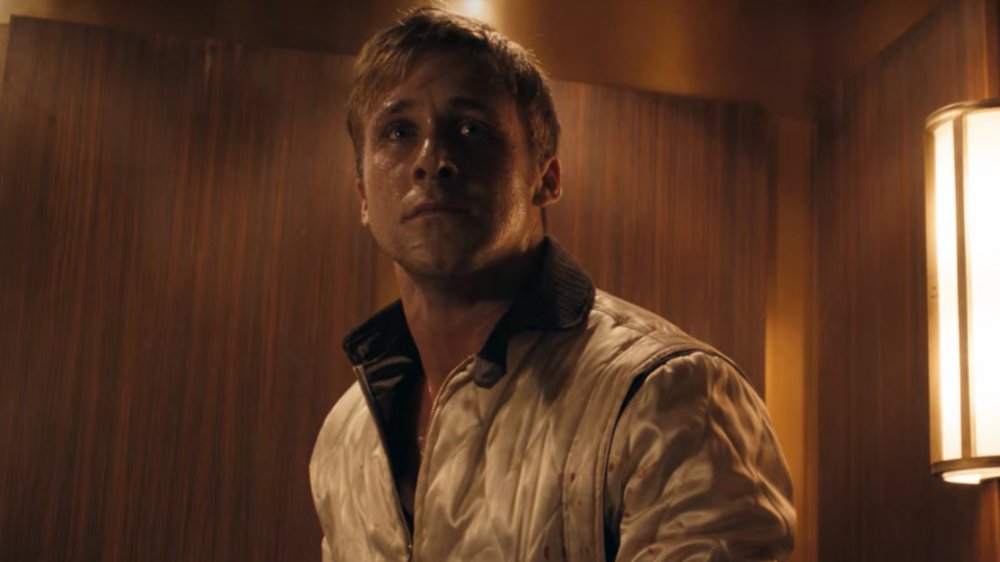The One Scene In These Netflix Films That Made Us Love These Actors Even More
Picture this: A loved one has made you chocolate chip pancakes, and arranged the chips into a smiley face. Is it impractical? Of course. This chip distribution does not facilitate maximum chocolate enjoyment in every bite. Yet the gesture melts your heart, making you love them even more. Favorite actors can pull off something very similar, given the right role. Just when you think you have them figured out, they surprise you with a dazzling show of skill. You already adored them, but you've been given a potent reminder of why, and that makes all the difference.
Streaming has made it easier than ever to access these delightful scenes. Some are hilarious moments of unexpected comedy. Some are scenes of horror from actors we'd never before associated with the macabre. Some are clever parodies of the actor's real-world reputation. All of them made us fall just a little bit deeper in love with the actor in question — and they're all available on Netflix. Sit back, relax, and prepare to be charmed.
Keanu Reeves in Always Be My Maybe
It's hard not to fall in love with Keanu Reeves. The man has been on fire for almost three decades, and the flames are only leaping higher. Whether he's dodging bullets as Neo in The Matrix, outwitting mobsters as John Wick, or getting laughs in the Bill & Ted series, he just keeps cranking out the hits. And then there's his role in Always Be My Maybe, in which he plays himself. Sort of.
Halfway through the film, Sasha, played by Ali Wong, introduces her new boyfriend: Keanu Reeves, playing ... Keanu Reeves. In an instant, Reeves reminds you of his comedic chops. He waltzes into the room in slow motion, charms everyone into a frenzy, and tells Sasha how he missed her "spirit." He sobs at a sip of wine. He asks the waiter, who he knows by name, if the restaurant has any dishes that "play with" the concept of time. Throughout it all, he is utterly sincere — which is exactly why fans love him. When he name drops Tom Ford, he isn't doing it out of arrogance — he's just genuinely jazzed to name the man who custom-made his beautiful suit. This heightened version of Reeves might not be the right man for Sasha, but he's the perfect guy for the rest of us.
Joe Pesci in The Irishman
There are very few actors who can command an entire scene the way Joe Pesci does. It's no surprise, then, that Scorsese pulled the veteran out of retirement in order to create The Irishman: Pesci forces everyone in the room to listen intently to every word he says. As Russell Bufalino, head of a 1950s crime family, Pesci embodies authority. The mafioso can give commands without speaking a word — and when he does speak, any menace is buried beneath layers of proper etiquette. The juxtaposition leaves you disarmed and vulnerable. You are left with his reality and nothing else.
This ability is put on full display when ol' Joe Gallo gets a little too big for his britches. The cocky crime boss pokes fun at a button Pesci has pinned to his suit and saunters off with his crew. Pesci doesn't say a word. He sits and eats his food while staring into nothing, seeming to look through DeNiro sitting in front of him. It takes approximately two seconds of that gaze for the audience to realize that Gallo is about to get whacked. When the scene cuts to a shot of a guns lined up on a bed, it isn't a surprise: Pesci conveyed what was going to happen with nothing but a searing, silent gaze.
Ryan Reynolds in 6 Underground
Somewhere in a lab in Hollywood, a mad scientist is bragging about Ryan Reynolds, his greatest invention. The six-foot slab of handsomeness is, as Deadpool made clear, a whole lot more than merely hunky: He's hilarious. Reynolds' ability to drench his words in sarcasm has us chuckling while body parts rain down on the city streets.
6 Underground flips the script in an interesting way. In this film, Reynolds plays the leader of an elite squad of vigilantes who take down the bad guys the government can't touch. Here, his loopy humor is used to intimidate: Those he interrogates can't tell how serious he is, which is fun to watch and believably maddening for any suspect to endure. In one scene in particular, a man wakes up strapped to a gurney with a shotgun aimed at his head, which is attached to a pulley system. The entire contraption is subject to the whims of a smug Ryan Reynolds. When he kicks off the device and nothing happens, the panicked captive stares bewildered at Reynolds, who just chuckles at what a delightful prankster he is. It's a scene with clear links to Reynolds' work in movies like Deadpool, but with a grittier twist — one that highlights the nuances of Reynolds' skill.
Adam Sandler in Uncut Gems
Adam Sandler has built his career on being a goofball. Audiences were shocked, then, to see him play Uncut Gems' Howard Ratner, an absolute mess of a man in ways that aren't particularly endearing. Yet Sandler proves to be the ideal actor for the role: The entire film has a vein of anxiety running through it that Sandler expertly embraces. Viewers are forced to walk alongside him as he makes matters worse, tries to do better, than stumbles once more. He so badly wants to do the right thing, but he just keeps taking the wrong risks.
In one scene, Sandler is at his daughter's school play when he spots a henchman watching him from the back of the theater. Rather than acknowledge this presence and resolve to deal with it later, he goes into the hallway to confront him. He escalates the entire situation and ends up naked and locked in the trunk of his own car. When his wife comes out to pop open the trunk, she doesn't even seem worried. You want to feel sorry for him, but you can't: These situations are all his fault. Uncut Gems features a Sandler performance that is at once similar to his most famous roles and utterly unlike them. In nailing this strange blend, he reminds us why we liked him in the first place.
Robert Downey Jr. in Zodiac
In Zodiac, Robert Downey Jr. plays a crime reporter living through San Francisco's infamous Zodiac Killer murders. In one scene, while discussing theories, Downey calls attention to a colleague's drink selection: A bright blue concoction in a fancy glass, topped off with cherries. His companion introduces the drink as an Aqua Velva, and suggests that Downey might enjoy it. Downey takes a sip ... and likes it so much that the two end having five or six Aqua Velvas between them before the night is over.
This light-hearted interaction helps carry an otherwise dry scene, and spotlights Downey's confrontational charm. The role reminds you of why he was chosen to play Tony Stark in the first place: He's immediately interesting, unafraid of getting goofy, and yet, utterly serious when it counts. In Zodiac, one sees all of Tony Stark's rakish charm in a completely different context — that of the real world, and a real crime that remains unsolved. His smug sarcasm is reframed as a defense mechanism against a world in which cruelty cannot always be prevented. Downey's performance in Zodiac is a strange, grim delight, and this scene encapsulates why.
Brie Larson in Room
It's not hard to see why Brie Larson won an Oscar for her performance in Room. As Joy, she portrays a woman in extreme circumstances — kidnapped as a teenager, held captive for years, raising a son who has never known the outside world — with unmatched skill. Larson shields her son from the true horror of their situation: She tells him that there is no world beyond their shed, and keeps him healthy by insisting upon exercise and scrupulous hygiene. Eventually, they escape ... but that's far from the end of their story.
Larson is reunited with her family — but it isn't her family as she remembers it. Her parents have divorced, her mother has re-married, and her father can't look her son in the eye. For the most part, Larson displays an enormous amount of inner strength by maintaining her composure through these revelations. The guise cracks, however, in a scene with her mother. All at once, Larson crumbles into long-simmering anger. She yells at her mother, and in so doing, she yells at the entire world. She hates the man who abducted her, she hates herself for falling for his ploy, and she hates the family she's returned to for reminding her of how vastly she has changed. It's a raw, emotional moment that reminds us why we'll always need more Brie Larson in our lives.
Chris Hemsworth in Extraction
Extraction finds Chris Hemsworth smack in the middle of an explosive turf war. A black ops mercenary, his mission is to extract the child of an Indian drug lord from the custody of a rival. Hemsworth is haunted by something in his past, but Extraction dangles it just out of reach for much of the movie's runtime. Rooms full of kidnappers armed with machine guns first, emotional journey later. Cue an absolutely incredible fight scene unlike anything Hemsworth gets to partake in as part of the MCU.
Hemsworth's target is kept in a heavily guarded apartment. As he charges into the room, he is briefly overwhelmed and loses his gun. Thus, he resorts to fisticuffs ... and unleashes an absolutely insane sequence of moves. Hemworth kicks an entire dining room table into a bad guy's jugular, body slams men's faces into the ground so hard their necks snap, and otherwise blows minds in the tradition of over-the-top action movies throughout history. It's an all-star fight scene utterly unlike anything seen in a superhero movie, and it reminds us of just how talented Hemsworth really is. We love him as Thor, but it's nice to be reminded of just how much we love him as everything else.
Eddie Murphy in Dolemite Is My Name
Eddie Murphy is best known to millions as Donkey from Shrek. It is a testament to his skill, then, that his performance in Dolemite Is My Name makes you forget he's ever played a role besides Rudy Ray Moore. It is intoxicating to watch Murphy flesh the character out: He can make us smile from ear to ear, but he can also ground an entire scene in ruthless honesty, forcing us to look at the person beneath the facade. Murphy keeps Moore's obsession, drive, and frustration simmering just below the surface — for much of the movie, you feel his performance more than you see or hear it. It's not just effective: It's the mark of an actor at the height of his powers.
A scene in which Murphy stumbles across an old family photo in his dressing room brings the movie's tension to a boil. He spends the next minute cursing out his dad in the photo and confronting himself in the mirror. It's a crack in the man's armor, glimpsed for the briefest moment. Then it seals over once again. The man wants the world to know his name, and Murphy makes sure we'll never forget it.
James Franco in The Disaster Artist
James Franco oozes charisma ... so what's he doing playing Tommy Wiseau, the weirdo who made The Room? Therein lies the performance's power. Is Franco messing with us? Is his Wiseau messing with us? Is he meant to be charming? Is he meant to be off-putting? How many belts is he wearing?
Franco, who also directed The Disaster Artist, doesn't give the audience any easy answers. In this film, disorientation is the point — much like in The Room. One scene emblematizes this oddball vibe perfectly by juxtaposing a recreated scene from The Room and the actual making of it. Franco, in the recreated scene, walks through a door while denying an accusation. But he can't get his lines down. The scene escalates, and eventually, the entire crew is collectively reciting his lines for him.
67 takes ensue. When Franco finally says each word, the crew cheers. No one even cares about how the scene actually went — getting through it is enough to merit celebration. In this moment, Franco embodies the bizarre grey area the entire film exists within: He is charming James Franco, he is strange Tommy Wiseau, he is taking The Room seriously, and he also making us laugh at how deeply inept it is. Nothing is clear — and that's the point.
Bill Paxton in Twister
Twister didn't just take disaster movies to new heights of success — it took Bill Paxton from successful supporting actor to top-tier leading man. His performance, a clever combination of soft-eyed worry and hard-edged bravery, still enchants audiences to this day. Watching Paxton arrive in tornado territory to get his ex-wife to sign their divorce papers, then slowly but surely become drawn back into the fascinating world of tornado hunters isn't just thrilling — it's genuinely emotionally affecting.
One particularly memorable scene occurs when Paxton and Helen Hunt, his ex-wife, attempt to release DOROTHY, a cutting-edge meteorological device, into a raging tornado. When DOROTHY is destroyed, Hunt is overwhelmed, her frustration over this most recent failure mixing with memories of her father's death-by-tornado. Paxton jolts her out of her spiral, addressing childhood trauma, family loss, and the love that still lingers between them as the storm continues to rage. It's a powerful scene that carries you into the second half of the movie ... and leaves you wondering how they produced such convincingly torrential rainfall.
Samuel L Jackson in The Hateful Eight
Samuel L. Jackson has filled Quentin Tarantino's movies with memorable moments large and small. But one scene from The Hateful Eight serves as a particularly memorable show of the legendary's actor's skill.
While seeking shelter from an approaching blizzard, Jackson is forced to share space with several unsavory characters. Among them is a former Confederate general, known to Jackson for racist cruelty. Jackson restrains himself for a while, but eventually succumbs to his desire to inflict emotional pain on the general. He begins to tell a story involving the general's late son, claiming to have been present for his final moments.
Nearby onlookers warn the general that Jackson is only trying to goad him into reaching for his gun. But it's too late — the general is entranced by the words spilling from Jackson's lips. Jackson tells a story about marching the Confederate lackey's son through the cold Wyoming winter, stripped of all his clothes. They marched him through the cold for so long, Jackson recounts, that the broken man was willing to do anything for a blanket ... anything at all. The general reaches for his pistol. Jackson grins. In moments, the general is dead. Jackson's monologue is horrific, nasty, and charged with tension — and instantly iconic.
Jessica Chastain in Molly's Game
In Molly's Game, Jessica Chastain radiates presence. She walks into a room, and everyone takes notice. At once, she makes the characters around her feel seen, cared for, and at ease, while also making it clear that she is not to be messed with. She is disarming, yet possessed of an utterly penetrating gaze. No wonder she was able to achieve such success in hosting private, high-rolling games of poker for the world's elite.
In the end, however, Chastain is toppled by a chance encounter with members of the Russian mafia. A meeting with federal prosecutors ensues. The lead prosecutor lays it on thick, looking her right in the eyes as he tells her that he doesn't believe a word she's saying. He proclaims that he has numerous recordings of mafia members talking about needing to "get Molly." Chastain smiles and gently interjects, informing him that they are not referring to her, but to the drug also known as ecstasy. The entire exchange is handled with confidence, grace, and razor-sharp poise — exactly what you might expect from a doyenne of illegal gambling.
Donald Glover in Solo
Most actors could not have pulled off Lando Calrissian the way Donald Glover does in Solo: A Star Wars Story. He's a character that requires absolute confidence, and a true delicacy of skill. The actor needs to believe wholeheartedly that Lando is, at all times, the coolest person in the room — and then make everyone else in the room believe it too. Just imagine how hammy some actors might have made the role, the smarm they would have stumbled into, and the sheer awfulness of the flirting that might have been attempted. Glover, in contrast, makes Lando suave, sophisticated, and utterly at ease.
One scene in particular epitomizes the character. The Millennium Falcon is revealed — then the crew notices that the ship is being impounded. A shady work associate offers to free the ship of its restraints in exchange for taking a chunk out of Glover's payout on a future job. He firmly addresses his co-worker, stating, "I don't like it. I don't agree with it. But I accept it." The dialogue is delivered with such salty finesse that you wish Lando could keep the Falcon for years to come.
Paul Rudd in Mute
Believe it or not, lovable everyman Paul Rudd plays a bad guy in Mute. This surprising casting works brilliantly: You are forced to acknowledge that he is not a good person, but you can't quite help but enjoy watching him. This is, of course, exactly how his character is able to weasel his way in and out of different situations. His unscrupulous character is a wonderful contrast to leading man Alexander Skarsgard — a contrast made especially visible in one memorable scene.
While Rudd discusses plans in a communal eating area, an elderly woman sits down next to him and begins obviously eavesdropping. Rudd's swearing visibly appalls the frail old lady. After a moment of frustration, he turns to the woman and essentially tells her that if she doesn't mind her own business, he will turn her coffee mug into a suppository. It's a hysterical moment that is perfectly accentuated by his lack of self-awareness — a cynical Rudd turns back to his friend and sighs, "People are so rude." Ant-Man, this character is not.
Ryan Gosling in Drive
Ryan Gosling makes smoldering charm, tender emotion, and icy cool look easy. In Drive, he brings all three qualities to the fore — but boy oh boy, does he embody that last one especially well. As the nameless driver, Gosling is basically cool personified. The whole movie makes this clear, but one scene in particular takes it to unforgettable heights.
In this scene, Gosling and his love interest are joined on an elevator by an armed man on his way up to pay them a visit. Gosling decides to act first. He turns to his lady friend and passionately kisses her like it's the last time he ever will — which, of course, really might be the case. Gosling knows that he is about to get violent with his would-be assassin and that afterwards, she will not look at him the same way. Immediately after this romantic gesture, Gosling throws the gunman to the ground and brutally stomps his head in. The love interest slowly backs out of the elevator, then locks eyes with Gosling as the elevator doors slowly roll shut. He was absolutely right, as he knew he would be. Gosling radiates melancholy, passion, and strangeness in this scene, in a way few actors would have been able to pull off.
